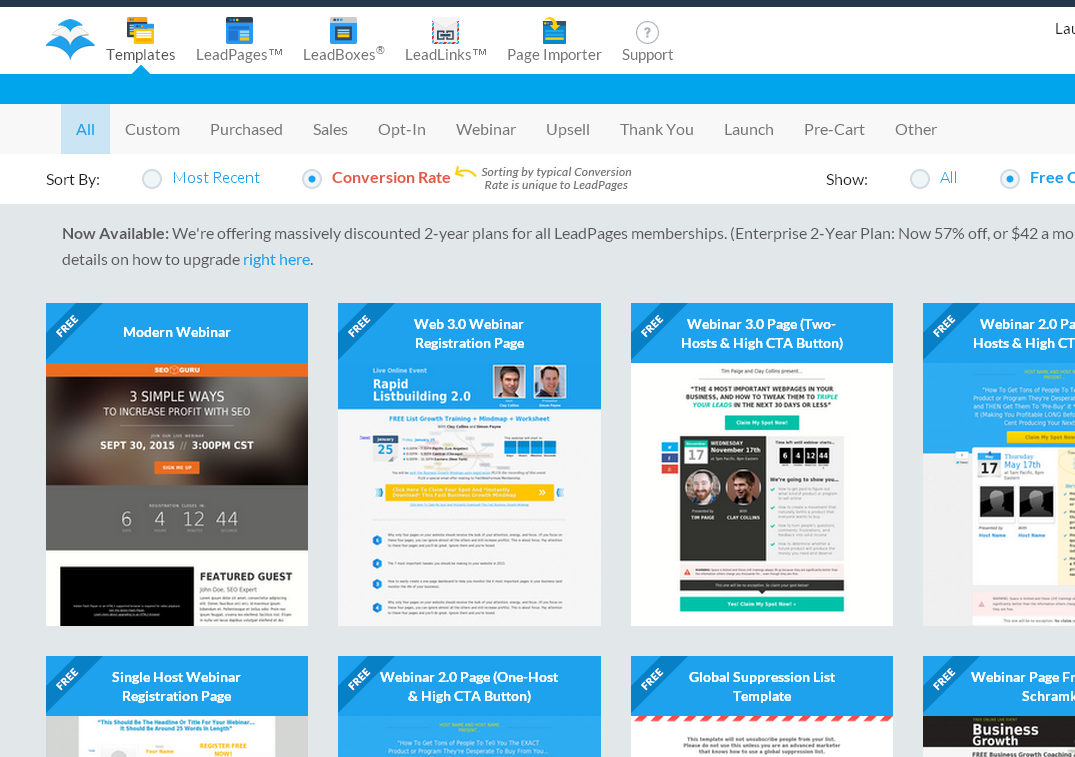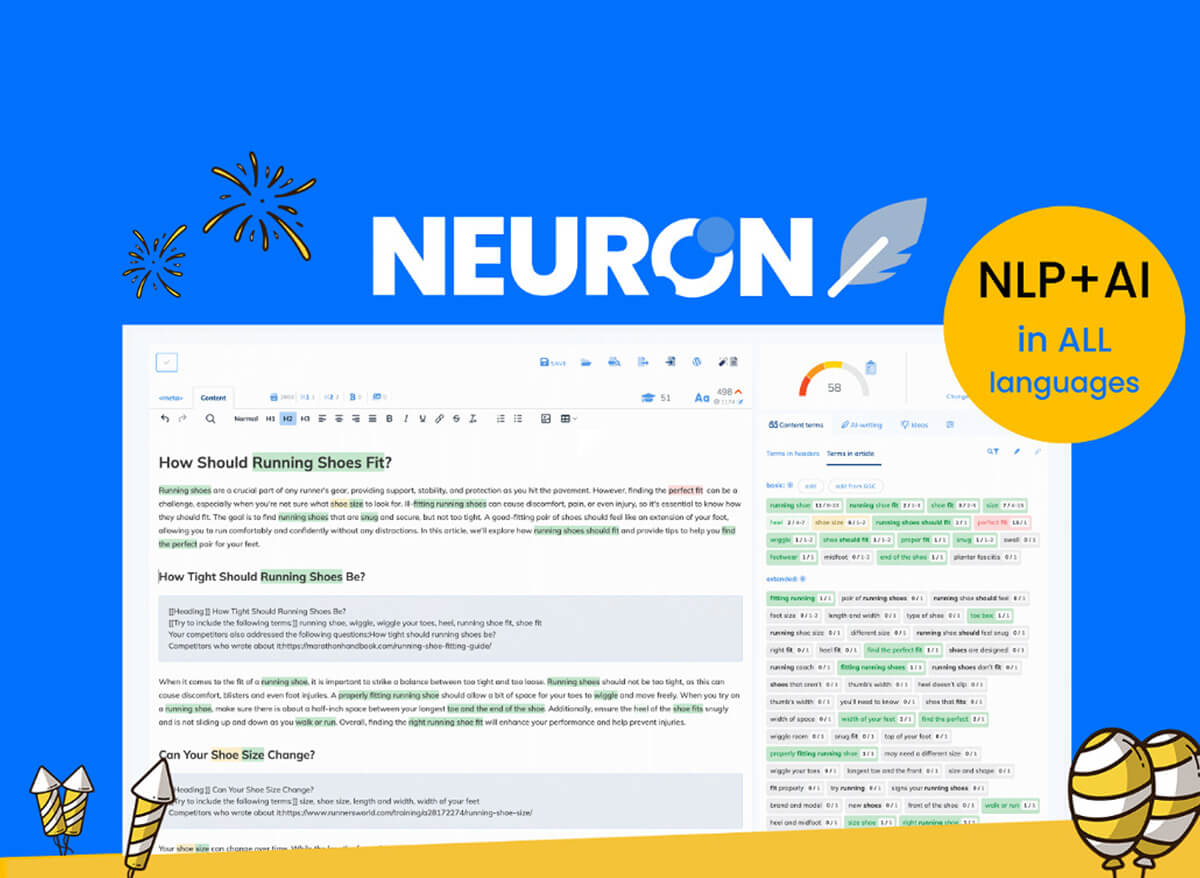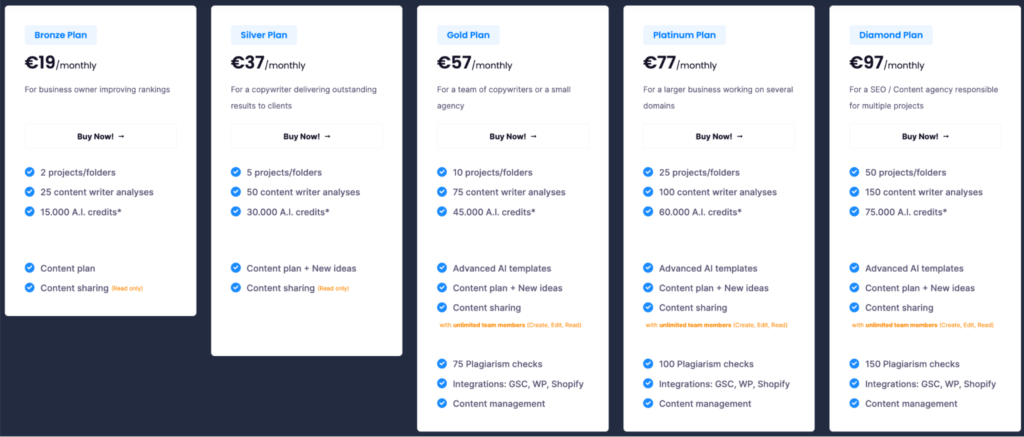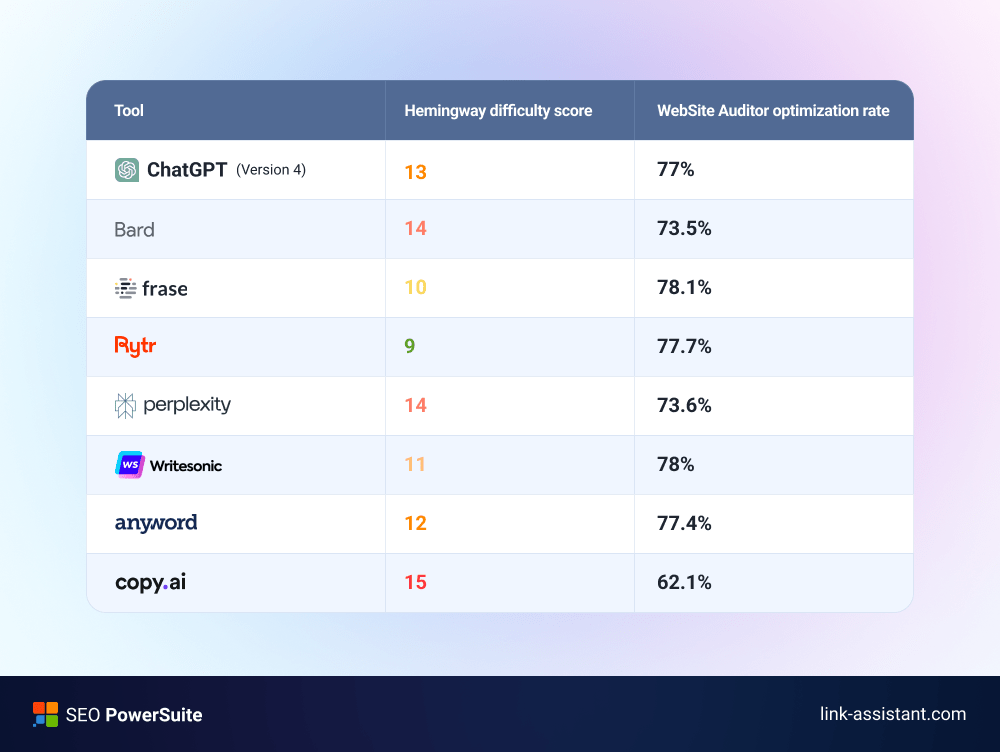Rank trackers have become an indispensable tool for businesses and digital marketers who want to stay ahead of the curve in the ever-changing landscape of search engine optimization (SEO). As the competition for top rankings on search engines like Google intensifies, the ability to monitor and analyze your website’s keyword rankings can mean the difference between success and failure.
In this comprehensive guide, we’ll explore the world of rank trackers, their features, and the factors you should consider when selecting the right tool for your needs. We’ll delve into the mechanics of keyword monitoring, advanced features, data-driven decision making, tool integration, best practices, emerging trends, and more. Whether you’re a seasoned SEO professional or a business owner seeking to improve your online visibility, this guide will equip you with the knowledge and insights you need to leverage rank trackers effectively.
Top 10 Rank Trackers for SEO Success in 2023: Features and Comparison
In the competitive world of SEO, having the right rank tracker tool can give you a significant advantage. Here, we’ll explore some of the top rank trackers available in 2023, their features, and how they compare to help you make an informed decision.
1. Ahrefs
- Comprehensive keyword research and analysis
- Accurate rank tracking for various search engines and locations
- Backlink analysis and competitor research
- Customizable reports and data visualization
2. SEMrush
- Detailed keyword tracking and position monitoring
- Competitor analysis and market insights
- On-page SEO optimization recommendations
- Integration with Google Analytics and other tools
3. Moz Pro
- Robust keyword research and ranking data
- Site audits and on-page optimization suggestions
- Link analysis and link building opportunities
- Easy-to-use interface and customizable reports
4. Rank Ranger
- Accurate keyword ranking data for desktop and mobile
- Local SEO tracking and location-based analysis
- Customizable alerts and notifications
- Comprehensive reporting and data visualization
5. AccuRanker
- Reliable rank tracking for various search engines
- Unlimited keyword tracking and project management
- Advanced filtering and segmentation options
- Customizable reporting and scheduling
6. SE Ranking
- Comprehensive rank tracking and keyword research
- Competitor analysis and market intelligence
- On-page optimization recommendations
- White-label reporting and API integration
7. SERPWatcher
- Accurate and frequent rank tracking
- Unlimited keyword and domain tracking
- Customizable alerts and notifications
- User-friendly interface and report scheduling
8. Wincher
- Detailed keyword ranking data and analysis
- Local and international rank tracking
- Competitor analysis and market insights
- Integration with popular SEO tools and platforms
9. SERPStat
- Comprehensive keyword research and analysis
- Accurate rank tracking for various search engines
- Competitor analysis and market intelligence
- Customizable reports and data visualization
10. Nightwatch
- Real-time rank tracking and monitoring
- Unlimited keyword and project tracking
- Advanced filtering and segmentation options
- Customizable alerts, reports, and integrations
These rank trackers offer a wide range of features and capabilities, from keyword research and analysis to competitor insights, site audits, and advanced reporting. When selecting a rank tracker, consider factors such as pricing, ease of use, integrations, and the specific needs of your business or SEO strategy.
How Rank Trackers Work: Understanding the Mechanics of Keyword Monitoring
Rank trackers are powerful tools that provide valuable insights into your website’s performance on search engines. But how do they work? Understanding the mechanics behind keyword monitoring can help you optimize your SEO efforts and make data-driven decisions.
Search Engine Crawling and Data Collection
At the core of every rank tracker is a sophisticated web crawler that mimics search engine bots. These crawlers periodically visit search engines and perform keyword searches, collecting data on the ranking positions of websites for specific keywords and locations.
Search Engine Compatibility
Rank trackers are designed to work with various search engines, including Google, Bing, Yahoo, and others. They can track rankings for both desktop and mobile searches, providing a comprehensive view of your website’s visibility across different devices and platforms.
Location-Based Tracking
Many rank trackers offer location-based tracking, allowing you to monitor your website’s rankings for specific geographic locations. This feature is particularly useful for businesses targeting local markets or those with a multinational presence.
Data Storage and Processing
The ranking data collected by the web crawlers is stored and processed on the rank tracker’s servers. This data is then analyzed, organized, and presented to users through intuitive dashboards, reports, and visualizations.
Keyword Tracking and Monitoring
At the heart of rank trackers is the ability to monitor and track your website’s rankings for specific keywords. Here’s how it works:
- Keyword Selection: You can input a list of keywords that are relevant to your business or website. These keywords can range from broad, high-volume terms to highly specific, long-tail phrases.
- Keyword Grouping: Many rank trackers allow you to organize your keywords into groups or projects, making it easier to manage and analyze data for specific campaigns or areas of focus.
- Ranking Updates: The rank tracker’s web crawlers periodically check the search engine rankings for your tracked keywords, updating the data in real-time or according to a set schedule.
- Rank Fluctuations: By monitoring your keyword rankings over time, rank trackers can identify patterns, fluctuations, and trends, helping you understand the impact of your SEO efforts or external factors on your rankings.
- Competitor Analysis: In addition to tracking your own website’s rankings, many rank trackers also allow you to monitor the rankings of your competitors, providing valuable insights into their SEO strategies and performance.
By understanding the mechanics behind rank trackers, you can better leverage these tools to optimize your SEO efforts, make data-driven decisions, and stay ahead of the competition in the ever-changing world of search engine rankings.
Beyond Keyword Ranking: Advanced Features of Rank Trackers for SEO Strategy
While rank tracking is the core function of these tools, modern rank trackers offer a range of advanced features that can enhance your overall SEO strategy and drive better results. In this section, we’ll explore some of the most valuable advanced features to look for in a rank tracker.
Keyword Research and Analysis
Effective keyword research is the foundation of any successful SEO campaign. Many rank trackers incorporate robust keyword research and analysis tools, helping you identify high-potential keywords, analyze search volumes, and assess competition levels.
Keyword Suggestion Tools
These tools leverage search engine data and user behavior patterns to suggest relevant keywords related to your business or industry. They can help you uncover new keyword opportunities and expand your targeting.
Keyword Difficulty and Competition Analysis
Understanding the difficulty and competition levels for specific keywords can inform your content strategy and resource allocation. Rank trackers often provide metrics like keyword difficulty scores and competitor analysis to guide your keyword targeting decisions.
Search Intent Analysis
Modern rank trackers can analyze the search intent behind keywords, helping you understand whether users are looking for informational content, products, services, or something else entirely. This can inform your content creation and optimization efforts.
On-Page Optimization Recommendations
Some rank trackers go beyond just tracking rankings by providing actionable recommendations for improving your on-page SEO. These features can include:
- Content Analysis: Evaluating the quality, relevance, and optimization of your existing content for target keywords.
- Title and Meta Tag Optimization: Suggesting improvements to your page titles, meta descriptions, and other on-page elements to better align with target keywords and user search intent.
- Technical SEO Audits: Identifying and flagging technical issues that may be hindering your website’s crawlability, indexability, and overall SEO performance.
By leveraging these on-page optimization recommendations, you can streamline your SEO efforts and ensure that your website’s content and structure are optimized for maximum visibility and user engagement.
Backlink Analysis and Link Building Opportunities
Backlinks remain a crucial ranking factor for search engines, and many rank trackers provide tools and insights to help you analyze and improve your backlink profile.
- Backlink Monitoring: Track the quality and quantity of backlinks pointing to your website, as well as those of your competitors.
- Link Opportunity Identification: Discover new link building opportunities by analyzing your competitors’ backlink profiles and identifying high-quality, relevant sites that could potentially link to your content.
- Disavow File Management: Some rank trackers offer tools to help you identify and manage low-quality or spammy backlinks that may be harming your rankings, and generate disavow files for submission to search engines.
By leveraging these backlink analysis and link building features, you can improve your website’s authority and credibility in the eyes of search engines, ultimately boosting your rankings and organic traffic.
Rank trackers have evolved beyond simple keyword ranking monitoring, offering a wealth of advanced features to support your overallSEO strategy. From keyword research and on-page optimization to backlink analysis and competitor insights, these tools provide valuable data and recommendations to help you improve your website’s visibility and performance in search engine results.
SERP Features Tracking
Search engine results pages (SERPs) are constantly evolving, with various features like featured snippets, knowledge panels, local packs, and more appearing alongside traditional organic listings. Some rank trackers offer SERP feature tracking to help you monitor your presence in these specialized result types.
- Featured Snippets: Identify keywords for which your website appears in featured snippets and optimize your content to maintain or improve these positions.
- Local Pack Results: Monitor your local SEO performance by tracking rankings in the local pack, map listings, and location-based searches.
- Knowledge Panels: Keep an eye on knowledge panels related to your brand or business to ensure accurate and up-to-date information is displayed to users.
By tracking SERP features, you can adapt your SEO strategy to capitalize on these opportunities and enhance your visibility in the increasingly diverse landscape of search results.
Mobile Ranking Insights
With the rise of mobile search traffic, it’s crucial to monitor your website’s rankings on mobile devices separately from desktop searches. Many rank trackers offer mobile ranking insights, allowing you to assess your mobile SEO performance and identify areas for improvement.
- Mobile-Friendly Rankings: Check how your website ranks on mobile search results and ensure that your site is optimized for mobile usability and speed.
- Mobile-Specific Keywords: Identify keywords that perform differently on mobile devices compared to desktops and tailor your content and optimization strategies accordingly.
- Mobile SERP Features: Track mobile-specific SERP features like app packs, image carousels, and other mobile-centric elements to understand your visibility on smaller screens.
By focusing on mobile ranking insights, you can cater to the growing mobile audience and enhance the user experience for visitors accessing your site on smartphones and tablets.
Reporting and Analytics
Comprehensive reporting and analytics capabilities are essential for monitoring your SEO performance, tracking progress over time, and demonstrating the impact of your efforts. Look for rank trackers that offer robust reporting features, including:
- Customizable Reports: Create tailored reports with key metrics, charts, and visualizations to share with clients, stakeholders, or team members.
- Scheduled Reports: Set up automated report generation and delivery on a regular basis to stay informed about changes in rankings, traffic, and other KPIs.
- Integration with Analytics Platforms: Connect your rank tracker to Google Analytics, Google Search Console, or other analytics tools to combine ranking data with website performance metrics.
By leveraging reporting and analytics features, you can gain valuable insights into the effectiveness of your SEO strategies, track ROI, and make informed decisions to drive continuous improvement.
Leveraging Rank Tracker Data for Data-Driven SEO Decision Making
The data collected and analyzed by rank trackers can serve as a valuable resource for making informed, data-driven decisions to optimize your SEO efforts. By interpreting this data effectively and taking actionable steps based on insights, you can improve your website’s visibility, attract more organic traffic, and achieve your SEO goals. Let’s explore how you can leverage rank tracker data for data-driven SEO decision making.
Performance Monitoring and Trend Analysis
One of the primary functions of rank trackers is to monitor your website’s performance in search engine results for specific keywords. By regularly reviewing ranking data and trends, you can identify patterns, fluctuations, and anomalies that may require attention or action.
- Keyword Performance: Track the rankings of your target keywords over time to assess their performance and identify opportunities for improvement.
- Ranking Trends: Analyze trends in your rankings, such as upward or downward movements, seasonality effects, or sudden drops, to understand the impact of algorithm updates or changes in your SEO strategy.
- Competitor Benchmarking: Compare your rankings with those of your competitors to gauge your competitive position, identify gaps, and uncover areas where you can outperform rivals.
By monitoring performance and analyzing trends, you can proactively adjust your SEO tactics, capitalize on emerging opportunities, and address challenges to maintain or improve your search visibility.
Content Optimization and Expansion
Keyword tracking data can provide valuable insights into the performance of your existing content and guide your content optimization and expansion efforts. Here’s how you can leverage rank tracker data for content-related decisions:
- Identify High-Performing Keywords: Pinpoint keywords that drive significant traffic and conversions to prioritize them in your content optimization strategy.
- Discover Low-Performing Keywords: Identify keywords with low rankings or declining performance to optimize underperforming content or explore new topic opportunities.
- Content Gap Analysis: Analyze keywords for which your competitors rank well but your website does not, indicating potential content gaps that you can fill with targeted, high-quality content.
By using rank tracker data to inform your content strategy, you can create relevant, engaging content that resonates with your target audience, boosts your search rankings, and drives organic traffic to your site.
Link Building Strategies
Backlink analysis tools within rank trackers can help you evaluate the quality and quantity of backlinks pointing to your site, as well as those of your competitors. This data can guide your link building strategies and tactics for improving your website’s authority and credibility.
- Backlink Quality Assessment: Identify high-quality, authoritative websites linking to your competitors and explore opportunities to secure similar backlinks for your own site.
- Competitor Backlink Analysis: Analyze your competitors’ backlink profiles to uncover potential link building opportunities, industry partnerships, or content collaboration possibilities.
- Anchor Text Analysis: Review the anchor text distribution of your backlinks to ensure a natural, diverse link profile that aligns with your target keywords and avoids over-optimization.
By leveraging backlink analysis data from your rank tracker, you can develop a strategic link building plan, acquire relevant and authoritative backlinks, and strengthen your website’s off-page SEO signals for improved rankings.
Local SEO Optimization
For businesses targeting specific geographic locations, rank trackers with local SEO features can provide valuable insights into your local search performance and help you optimize your online presence for local audiences. Here’s how you can use rank tracker data for local SEO optimization:
- Local Keyword Tracking: Monitor rankings for location-specific keywords, city names, or regional terms to assess your visibility in local search results.
- Google My Business Integration: Connect your Google My Business account to your rank tracker to track rankings in the local pack, gather customer reviews, and manage your business information.
- Local Citation Analysis: Evaluate the consistency and accuracy of your business citations across online directories, review sites, and social platforms to improve local search rankings and credibility.
By focusing on local SEO optimization with the help of rank tracker data, you can enhance your visibility in local search results, attract nearby customers to your physical locations, and drive foot traffic and conversions.
Performance Tracking Across Devices
With the increasing prevalence of mobile search and the importance of mobile-friendliness for SEO, tracking your website’s performance across different devices is essential. Rank trackers that offer device-specific tracking can help you assess your visibility and rankings on desktop, mobile, and tablet devices.
- Mobile Ranking Insights: Monitor your mobile search rankings separately from desktop rankings to identify mobile-specific optimization opportunities and track mobile SERP features.
- Responsive Design Evaluation: Assess how your website renders and performs on various devices to ensure a seamless user experience and compliance with Google’s mobile-first indexing.
- Local Mobile Searches: Track rankings for location-based keywords on mobile devices to target users searching for nearby businesses or services on their smartphones.
By monitoring performance across devices and optimizing for mobile users, you can cater to a diverse audience, improve user experience, and increase your chances of ranking well in mobile search results.
Conversion Rate Optimization
While rank trackers primarily focus on tracking keyword rankings and organic traffic, they can also play a role in conversion rate optimization (CRO) by providing insights into user behavior, engagement metrics, and conversion paths. Here’s how you can leverage rank tracker data for CRO:
- Traffic and Conversion Correlation: Analyze the relationship between keyword rankings, organic traffic, and conversion rates to identify high-converting keywords and landing pages.
- User Engagement Metrics: Monitor on-page engagement metrics like bounce rate, time on page, and pages per session to assess the effectiveness of your content and user experience.
- Conversion Funnel Analysis: Track the performance of specific landing pages or conversion paths to identify bottlenecks, optimize user flow, and improve conversion rates.
By integrating rank tracker data with your CRO efforts, you can optimize your website for conversions, enhance user experience, and maximize the impact of your SEO campaigns on lead generation and revenue.
In conclusion, rank trackers are powerful tools that provide valuable insights and data to support your SEO strategy and decision-making process. By understanding how rank trackers work, exploring their advanced features, and leveraging the data they generate, you can optimize your website for better search engine visibility, attract more organic traffic, and achieve your SEO goals effectively.
Video
<div class="youtubeVideo
“>
Conclusion
Rank trackers are indispensable tools for monitoring your website’s search engine rankings, analyzing keyword performance, and gaining insights into your SEO efforts. By choosing the right rank tracker for your needs, understanding its features and capabilities, and following best practices for data-driven decision-making, you can optimize your SEO strategy, improve your website’s visibility, and stay ahead of the competition in the ever-evolving landscape of search engine optimization.
Whether you’re a seasoned SEO professional or a business owner looking to enhance your online presence, incorporating a rank tracker into your toolkit can provide valuable data, actionable insights, and measurable results. Stay informed about the latest trends and innovations in rank tracking technology, experiment with different strategies and techniques, and continuously refine your approach to SEO based on data and analytics.
With the right rank tracker by your side, you can navigate the complexities of search engine algorithms, outrank your competitors, and achieve sustainable success in driving organic traffic, generating leads, and growing your online business. Embrace the power of rank trackers as your trusted allies in the journey towards SEO excellence and digital growth.
Keywords: Rank Trackers, SEO Strategy, Keyword Monitoring, Data-Driven Decisions, Advanced Features, Local SEO, Backlink Analysis, Mobile Ranking, Conversion Rate Optimization.
Locations: Global.”In the realm of SEO, backlinks play a crucial role in determining a website’s authority and relevance to search engines. By analyzing your backlink profile and those of your competitors, you can uncover valuable insights and opportunities to enhance your link building strategy. Here are some key aspects of backlink analysis that you can leverage with the help of a reliable rank tracker:
- Backlink Profile Evaluation: Use your rank tracker to assess the quality and quantity of backlinks pointing to your website, including metrics such as domain authority, anchor text diversity, and referring domains.
- Competitor Backlink Analysis: Compare your backlink profile to that of your competitors to identify potential link building opportunities, industry partnerships, or content collaboration possibilities.
- Anchor Text Analysis: Review the distribution of anchor text in your backlinks to ensure a natural, diverse link profile that aligns with your target keywords and avoids over-optimization.
By harnessing the data from backlink analysis through your rank tracker, you can develop a strategic approach to acquiring relevant and authoritative backlinks, thereby strengthening your website’s off-page SEO signals and improving your search engine rankings.
Local SEO Optimization
For businesses targeting specific geographic locations, local SEO features in rank trackers can offer valuable insights into your performance in local search results. Here’s how you can utilize rank tracker data for optimizing your online presence for local audiences:
- Local Keyword Tracking: Monitor rankings for location-specific keywords, city names, or regional terms to evaluate your visibility in local search results.
- Google My Business Integration: Connect your Google My Business account to your rank tracker to track rankings in the local pack, manage customer reviews, and update business information.
- Local Citation Analysis: Evaluate the consistency and accuracy of your business citations across online directories, review sites, and social platforms to boost local search rankings and credibility.
By focusing on local SEO optimization with the aid of rank tracker insights, you can enhance your visibility in local search results, attract nearby customers to your physical locations, and drive conversions and foot traffic effectively.
Performance Tracking Across Devices
Given the significance of mobile search and the need for mobile-friendly websites in SEO, monitoring your site’s performance across various devices is essential. Rank trackers that offer device-specific tracking can help you gauge your visibility and rankings on desktop, mobile, and tablet devices.
- Mobile Ranking Insights: Monitor your mobile search rankings independently from desktop rankings to pinpoint mobile-specific optimization opportunities and track mobile SERP features.
- Responsive Design Evaluation: Assess your website’s rendering and performance on different devices to ensure a seamless user experience and compliance with Google’s mobile-first indexing.
- Local Mobile Searches: Track rankings for location-based keywords on mobile devices to target users searching for nearby businesses or services on their smartphones.
By tracking performance across devices and optimizing for mobile users, you can cater to a diverse audience, enhance user experience, and increase your chances of ranking well in mobile search results.
Conversion Rate Optimization
While rank trackers primarily focus on keyword rankings and organic traffic, they can also contribute to conversion rate optimization (CRO) by providing insights into user behavior, engagement metrics, and conversion paths. Here’s how you can leverage rank tracker data for CRO purposes:
- Traffic and Conversion Correlation: Analyze the relationship between keyword rankings, organic traffic, and conversion rates to identify high-converting keywords and landing pages.
- User Engagement Metrics: Monitor on-page engagement metrics like bounce rate, time on page, and pages per session to evaluate the effectiveness of your content and user experience.
- Conversion Funnel Analysis: Track the performance of specific landing pages or conversion paths to identify bottlenecks, optimize user flow, and improve conversion rates.
By integrating rank tracker data with your CRO efforts, you can optimize your website for conversions, enhance user experience, and maximize the impact of your SEO campaigns on lead generation and revenue.
In conclusion, rank trackers serve as invaluable tools for monitoring search engine rankings, analyzing keyword performance, and gaining insights into SEO strategies. By selecting the right rank tracker for your requirements, understanding its features, and adhering to best practices for data-driven decision-making, you can refine your SEO approach, boost your website’s visibility, and stay competitive in the dynamic landscape of search engine optimization.
Whether you’re an experienced SEO professional or a business owner aiming to elevate your online presence, incorporating a rank tracker into your toolkit can furnish you with valuable data, actionable insights, and measurable outcomes. Stay abreast of the latest trends and advancements in rank tracking technology, experiment with diverse strategies, and continuously refine your SEO tactics based on data and analytics.
With a dependable rank tracker at your disposal, you can navigate the intricacies of search engine algorithms, outperform your rivals, and achieve sustainable success in driving organic traffic, generating leads, and expanding your online enterprise. Embrace the capabilities of rank trackers as your trusted companions on the path to SEO excellence and digital expansion.







